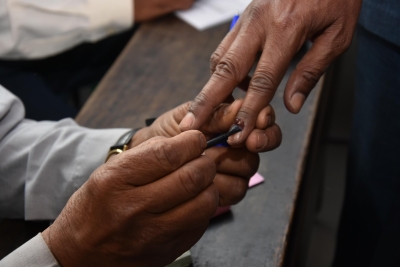Agartala/Shillong (IANS) The Citizenship (Amendment) Act (CAA) issue through not vociferously highlighted in the ongoing campaign in three election-bound states — Tripura, Nagaland, Meghalaya — remains active in the entire northeast region even after over three years of passing the law and the on-off agitations against it.
The All Assam Students Union (AASU), the North East Students Organisation (NESO) and several other organisations along with the Congress and the CPI-M led Left parties are strongly opposing the CAA.
The leaders of AASU and NESO said that as their organisations are apolitical bodies they did not highlight the CAA issue in the poll bound states while the Congress and the CPI-M also largely remained silent on this issue.
However, some local parties including the influential tribal based party Tipra Motha Party (TMP) during the election campaign in Tripura highlighted the objections against the CAA.
The TMP, which has been demanding the upgradation the Tripura Tribal Areas Autonomous District Council (TTAADC) into a full-fledged state, promised to pass a resolution against the CAA within 150 days if the party comes to power in Tripura after the February 16 Assembly elections.
TMP chief and former royal scion Pradyot Bikram Manikya Deb Barman while announcing its 15-point agenda — Mission 15 for 150 days — for the Assembly elections said: “We want people irrespective of any religion and caste to live in Tripura. We will pass a resolution against the CAA.
“In one country there cannot be two laws, similarly, one country cannot have a law which bars Muslims, Hindus, tribals and others.”
Deb Barman, who was the president of the Tripura Pradesh Congress, quit the party in 2019 after differences with the Central leaders over CAA. He also filed a case in the Supreme Court against the CAA.
Deb Barman’s father Kirit Bikram Debbarman was the Congress MP from Tripura and his mother Bibhu Kumari Devi was a minister in the Congress led coalition government (1988-1993).
The AASU and the NESO had also earlier filed cases against the CAA in the Supreme Court.
Talking to IANS, NESO chairman Samuel B. Jyrwa said that though they are not making the CAA an issue in the election bound states, they would fight against the law both on the ground and in the courts.
The AASU and the NESO on December 11 last year observed the third anniversary of the passage of the law in Parliament as a ‘black day’ across the northeastern region.
“The observation of ‘black day’ is to give a message to the government of India that we are against the CAA and also at the same time to remind our people of yet another political injustice that the government perpetrated on the indigenous peoples of the northeast,” the NESO chairman told IANS over phone from Shillong.
The NESO, which is a conglomerate of eight student organisations of seven northeastern states including the AASU, has been spearheading the agitations across the region since the BJP-led Central government moved the law in Parliament in November-December 2019.
In Assam, which was the epicentre of the anti-CAA protests in 2019, the AASU held memorial gatherings on December 11 last year at different places and offered floral tributes to the five people who were killed in firing during the agitations three years ago.
AASU president Utpal Sharma said they won’t accept the CAA as it is against the indigenous people and genuine citizens of India.
“We would continue our agitations against the CAA,” he said.
AASU leader Samujjal Bhattacharya said that they would continue the agitation against the CAA, which according to him is against the original people of the region.
The anti-CAA protests had first started in Assam, parts of West Bengal and other northeastern states in 2019 and continued till 2020 before the outbreak of the Covid-19 pandemic.
At least five persons were killed in the protests against the CAA in Assam, which also witnessed large-scale violence and imposition of curfew for several days.
The CAA seeks to grant Indian citizenship to non-Muslim minorities — Hindus, Sikhs, Buddhists, Jains, Parsis and Christians — who have migrated from Bangladesh, Pakistan and Afghanistan till December 31, 2014, after facing faith-based persecution.
It was passed by both the Houses of Parliament and given Presidential assent in December 2019.
However, rules under the CAA are yet to be framed.
Besides the CAA, the NESO has been agitating demanding complete scrapping of the Armed Forces Special Powers Act, providing constitutional safeguards to the indigenous communities, and the imposition of Inner Line Permit (ILP) to protect the indigenous people in all northeastern states.

